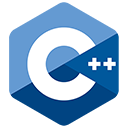| h |
- move cursor left |
| j |
- move cursor down |
| k |
- move cursor up |
| l |
- move cursor right |
| H |
- move to top of screen |
| M |
- move to middle of screen |
| L |
- move to bottom of screen |
| w |
- jump forwards to the start of a word |
| W |
- jump forwards to the start of a word (words can contain punctuation) |
| e |
- jump forwards to the end of a word |
| E |
- jump forwards to the end of a word (words can contain punctuation) |
| b |
- jump backwards to the start of a word |
| B |
- jump backwards to the start of a word (words can contain punctuation) |
| ge |
- jump backwards to the end of a word |
| gE |
- jump backwards to the end of a word (words can contain punctuation) |
| % |
- move to matching character (default supported pairs: '()', '{}', '[]' - use :h matchpairs in vim for more info) |
| 0 |
- jump to the start of the line |
| ^ |
- jump to the first non-blank character of the line |
| $ |
- jump to the end of the line |
| g_ |
- jump to the last non-blank character of the line |
| gg |
- go to the first line of the document |
| G |
- go to the last line of the document |
| 5gg or 5G |
- go to line 5 |
| gd |
- move to local declaration |
| gD |
- move to global declaration |
| fx |
- jump to next occurrence of character x |
| tx |
- jump to before next occurrence of character x |
| Fx |
- jump to previous occurence of character x |
| Tx |
- jump to after previous occurence of character x |
| ; |
- repeat previous f, t, F or T movement |
| , |
- repeat previous f, t, F or T movement, backwards |
| } |
- jump to next paragraph (or function/block, when editing code) |
| { |
- jump to previous paragraph (or function/block, when editing code) |
| zz |
- center cursor on screen |
| Ctrl + e |
- move screen down one line (without moving cursor) |
| Ctrl + y |
- move screen up one line (without moving cursor) |
| Ctrl + b |
- move back one full screen |
| Ctrl + f |
- move forward one full screen |
| Ctrl + d |
- move forward 1/2 a screen |
| Ctrl + u |
- move back 1/2 a screen |
HTML
 dot Net
dot Net
 C
C
 C++
C++
 Assembly Language
Assembly Language
Java
Lua
Objective-C
php
Python
SQL
 django
django
 CSS
CSS
 VIM
VIM
PHP Storm
Drupal
Wordpress
Git
Linux
 htaccess
htaccess
Laravel
Vue.Js
 Node.Js
Node.Js
 cakephp
cakephp
 Dart
Dart
 Javascript
Javascript
React
ReactNative
Jquery
 Visual Studio Code
Visual Studio Code
Shopify
Angular Js
Codeigniter
Woocommerce
 Sublimetext
Sublimetext
 Pycharm
Pycharm
 Atom
Atom
 Ruby
Ruby
 Joomla
Joomla
 TCP
TCP
Netbeans
Magento
 Perl
Perl
 Asp.net
Asp.net
 Arduino
Arduino
Notepad ++
 WebStorm
WebStorm


